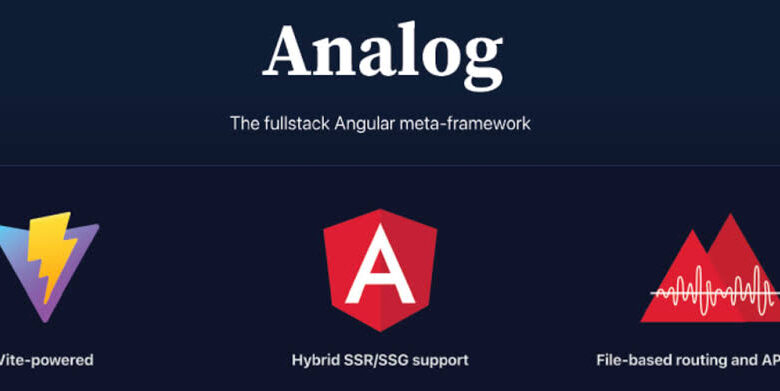Analog.js vs. Next.js vs SolidStart: Comparing meta frameworks

Due to its ability to extend base frameworks and provide developers with advanced and simplified tools to support their development process, the meta-framework has recently gained a lot of traction.
we’ll plunge into the three striking meta-systems that are completely based on existing JavaScript structures: Analog.js for Rakish, Next.js for Respond, and SolidStart for SolidJS. We’ll take a gander at every one of these systems, featuring their likenesses and remarkable highlights with regards to convenience, usability, and execution.
Analog.js
Analog.js is another structure based on top of the Precise system that is known for its vigor in building venture level applications. Analog.js broadens the highlights of Angular.js, offering an improved advancement experience. It makes it easier to build Angular applications, integrates advanced build optimizations, and streamlines common Angular development tasks. This system centers around further developing advancement speed and improving on complex Rakish ideas.
Next.js
Next.js is a popular React meta-framework known for its server-side rendering capabilities and quick build mechanism. It makes it easier for developers to build scalable and highly performant web apps by handling routing, page layout, and server-side rendering in React applications. Next.js also has features that improve the performance and speed of React applications, such as automatic code splitting and static site generation.
SolidStart
SolidStart is a high level form of SolidJS. It enhances SolidJS by providing a standardized approach to application development with enhanced application structure, enhanced server rendering capabilities, and a collection of development tools that facilitate the creation of quick and responsive web applications. It is expected to take full advantage of SolidJS’s elements, giving a proficient and smoothed out advancement process.
Analog.js vs Next.js vs solidStart
Analog.js, Next.js, and SolidStart are all extensions to existing JavaScript frameworks that enhance developer experience and application performance. These meta-systems share normal functionalities that make them integral assets for current web improvement.
Each of the three meta-systems support server-side delivering (SSR) for better Website optimization and quicker introductory burden times, as well as static webpage age (SSG) for further developed execution. Analog.js, Next.js, and SolidStart offer elements like dynamic directing with information bringing abilities, empowering rich and intuitive client encounters. Each of these meta-systems likewise has Programming interface courses to permit the execution of Programming interface endpoints, with code dividing abilities pointed toward upgrading load times by just sending the essential code for each page or part.
Let’s compare the improved usability, ease of use, and performance of each meta-framework to better comprehend its strengths and similarities.




